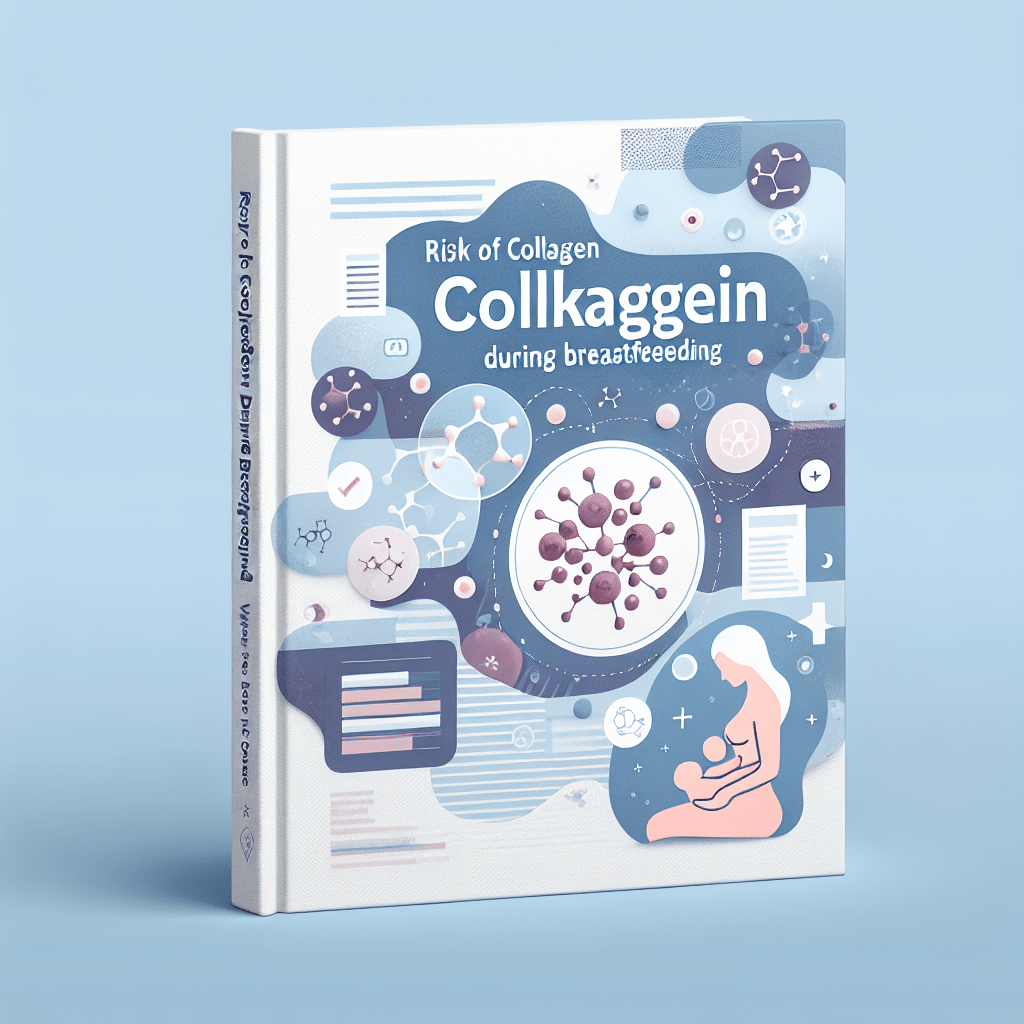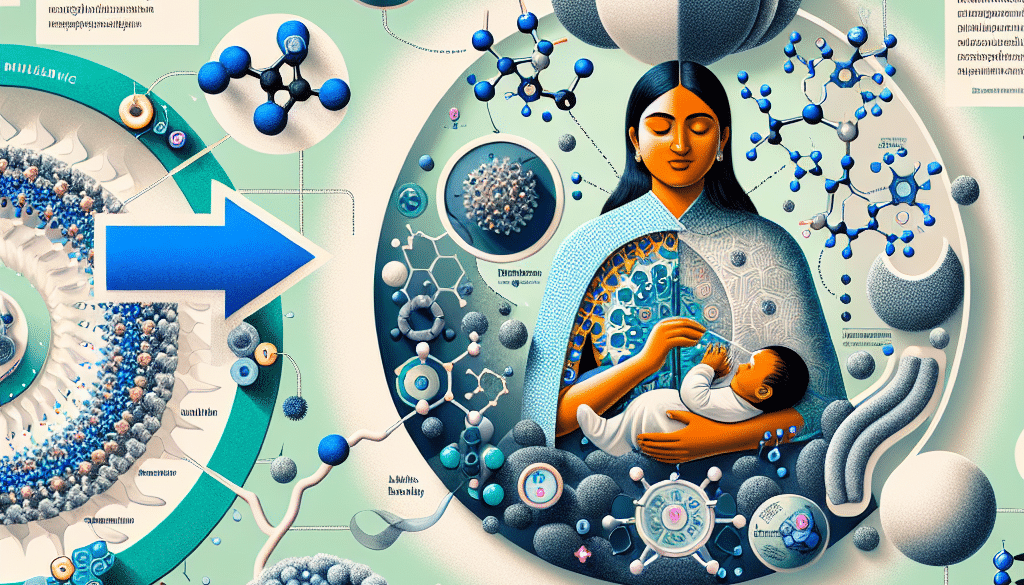Risk of Collagen During Breastfeeding: What You Need to Know
-
Table of Contents
- Risk of Collagen Supplementation During Breastfeeding: Essential Insights
- Understanding Collagen and Its Role
- Collagen Supplements: Types and Sources
- The Safety of Collagen Supplementation During Breastfeeding
- Potential Risks and Considerations
- Quality and Purity of Supplements
- Allergic Reactions
- Dietary Preferences and Restrictions
- Research and Evidence
- Alternatives to Collagen Supplements
- Consulting Healthcare Providers
- Conclusion: Balancing Benefits and Risks
- ETChem: Your Trusted Source for High-Quality Protein Products
Risk of Collagen Supplementation During Breastfeeding: Essential Insights

Collagen supplements have become increasingly popular in recent years, touted for their potential benefits to skin, hair, nails, and joint health. However, for breastfeeding mothers, the decision to take any supplement comes with an added layer of consideration: the safety and well-being of their nursing infant. In this article, we delve into the risks and considerations associated with collagen supplementation during breastfeeding, providing mothers with the information they need to make informed decisions.
Understanding Collagen and Its Role
Collagen is the most abundant protein in the human body, playing a crucial role in maintaining the structure and integrity of skin, bones, tendons, and other connective tissues. As we age, our bodies produce less collagen, which can lead to signs of aging such as wrinkles and joint pain. This has led many to seek out collagen supplements to counteract these effects.
Collagen Supplements: Types and Sources
Collagen supplements typically come from one of several sources:
- Bovine (cow)
- Porcine (pig)
- Marine (fish)
- Chicken
These supplements are often sold in the form of powders, capsules, or liquids, and are marketed to support various aspects of health.
The Safety of Collagen Supplementation During Breastfeeding
When it comes to breastfeeding, the primary concern with any supplement is whether it can pass through breast milk and potentially affect the infant. While there is limited research on the effects of collagen supplements during breastfeeding, it is generally considered safe. However, it is crucial to consult with a healthcare provider before starting any new supplement regimen during this sensitive period.
Potential Risks and Considerations
Despite the general safety profile, there are several risks and considerations breastfeeding mothers should be aware of:
Quality and Purity of Supplements
Not all collagen supplements are created equal. The quality and purity of the product can vary widely between brands. Contaminants such as heavy metals or harmful additives could pose a risk to both mother and baby.
Allergic Reactions
Since collagen is derived from animal sources, there is a risk of allergic reactions. Mothers with known allergies to specific animals should avoid collagen supplements derived from those sources.
Dietary Preferences and Restrictions
For those with dietary restrictions, such as vegetarians or individuals who avoid certain animals for religious reasons, it’s important to choose a collagen supplement that aligns with these preferences.
Research and Evidence
While anecdotal evidence suggests that many women have taken collagen supplements while breastfeeding without issue, scientific research on the topic is sparse. Studies that do exist tend to focus on the benefits of collagen for postpartum recovery and skin elasticity, rather than its safety during breastfeeding.
Alternatives to Collagen Supplements
For mothers who are concerned about the potential risks of collagen supplements, there are natural ways to support the body’s collagen production:
- Eating a balanced diet rich in protein and vitamins C and E
- Avoiding excessive sun exposure
- Staying hydrated
- Practicing regular skin care routines
Consulting Healthcare Providers
Before starting any supplement, it’s essential for breastfeeding mothers to consult with their healthcare provider. They can provide personalized advice based on the mother’s health history and the specific needs of the infant.
Conclusion: Balancing Benefits and Risks
Breastfeeding mothers considering collagen supplements must weigh the potential benefits against the risks. While collagen is generally safe, the lack of extensive research into its effects during breastfeeding necessitates caution and consultation with a healthcare professional.
ETChem: Your Trusted Source for High-Quality Protein Products
If you’re looking for high-quality collagen products, ETChem is a reputable manufacturer and supplier that offers a wide range of collagen types to suit various needs. Their products are known for their neutral taste and instant solubility, making them an excellent choice for those looking to incorporate collagen into their diet.
About ETChem:
ETChem, a reputable Chinese Collagen factory manufacturer and supplier, is renowned for producing, stocking, exporting, and delivering the highest quality collagens. They include marine collagen, fish collagen, bovine collagen, chicken collagen, type I collagen, type II collagen and type III collagen etc. Their offerings, characterized by a neutral taste, instant solubility attributes, cater to a diverse range of industries. They serve nutraceutical, pharmaceutical, cosmeceutical, veterinary, as well as food and beverage finished product distributors, traders, and manufacturers across Europe, USA, Canada, Australia, Thailand, Japan, Korea, Brazil, and Chile, among others.
ETChem specialization includes exporting and delivering tailor-made collagen powder and finished collagen nutritional supplements. Their extensive product range covers sectors like Food and Beverage, Sports Nutrition, Weight Management, Dietary Supplements, Health and Wellness Products, ensuring comprehensive solutions to meet all your protein needs.
As a trusted company by leading global food and beverage brands and Fortune 500 companies, ETChem reinforces China’s reputation in the global arena. For more information or to sample their products, please contact them and email karen(at)et-chem.com today.

